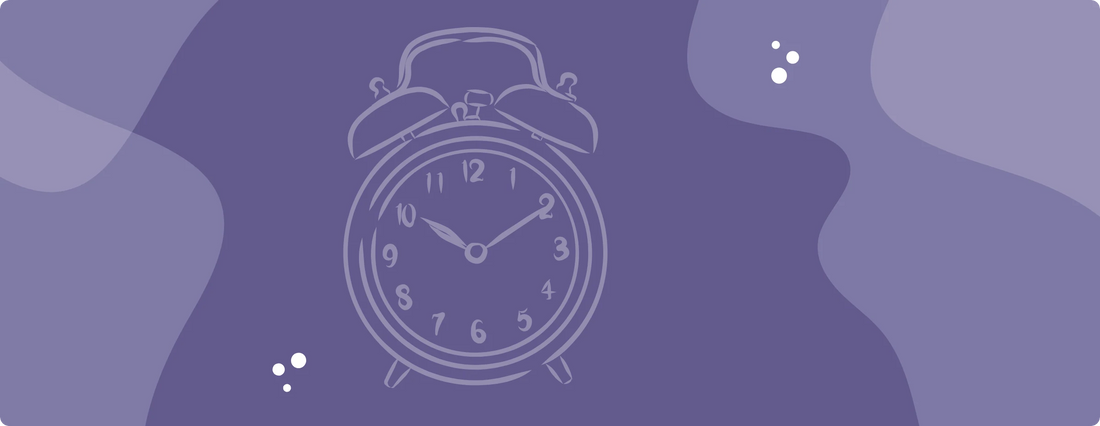Have you ever stayed up late, but then your body still wakes you at the same time as it would if you had gone to bed early?
Seems like clockwork, right?
Well, in a way it is. Your body has several internal clocks that can cause you to wake up at the same time every day.
They’re called your circadian rhythms.
The word circadian comes from the Latin roots circa and dies, meaning “around a day.” That’s because functions defined as circadian rhythms follow a regular average cycle of about 24-25 hours.
The sleep/wake cycle is one example of a circadian rhythm, but they’re also responsible for regulating hormones, body temperature, hormone production, cell regeneration and repair, hunger cravings, and even some brain functions.
These intricate cycles help maintain homeostasis—that is, they keep your body functioning normally. They respond to physical signals, such as the light your eyes register, to move your body from one stage to the next.

Daylight is a Major Factor...
Both daylight and darkness influence your body's natural rhythms.
As night falls, your brain releases the hormone melatonin to make you sleepy. Your melatonin levels should stay elevated throughout the night.
When morning arrives, the light your body receives cues it to produce serotonin and reduce its production of melatonin. This process causes you to wake up.

Different Factors Affect Your Circadian Rhythm
Various internal and external influences can affect your sleep/wake cycle:
- Blue light: Light from your devices can affect your brain the same way daylight does, keeping you up later than you intended. (Check out our blog “The Low Down on Blue Light” here to learn more.)
- Exercise: People who exercise are less likely to have problems with their circadian rhythms. Specifically, those who exercise more often have better sleep patterns and less trouble regulating their body temperature.
- Caffeine: Caffeine interferes with your sleep/wake cycle by blocking receptors in the brain for a special chemical called adenosine. These receptors are responsible for regulating sleepiness during the day, so be sure to avoid caffeine for 6 hours before bed.
- Alcohol: Alcohol decreases melatonin production in your body. This means that not only will it be harder to fall asleep when you drink, but you'll also have a harder time staying asleep once you've finally drifted off.
- Jet Lag: When you travel across time zones, your body has to adjust to the new light/dark cycle in order to maintain its circadian rhythm. This means that our bodies start producing melatonin at a different time than usual, which makes it hard for you to fall asleep at the right time. Your cortisol levels rise as well, making you feel tired during the day and wired at night.

Consequences of an Unbalanced Circadian Rhythm
When your sleep cycle is disrupted, it can adversely affect a number of body systems, including hormone production and metabolism. This raises the risk for a range of health problems like insomnia and depression, as well as obesity, gastrointestinal problems, and diabetes.
Sleep deprivation has even been linked to an increased risk of developing cancer.
In a study, the Sleep Foundation stated, “There are indications that circadian rhythms have an important influence on the immune system as well as processes of DNA repair that are involved in preventing cancer. Early-stage research indicates that circadian cycles can influence the effectiveness of anti-cancer drugs and that new medications may be able to harness biological clocks to kill cancer cells.”
How to Get Your Internal Clock Back on Track
There are many ways to treat insomnia and get good sleep, including light therapy, behavioral therapy and prescription medications. But there are also a few simple, natural options you can try:
- Spend some time outdoors in natural light
- Reduce, or stop, using screens before bedtime
- Take a natural sleep supplement…
Like SleepPak.
When you take SleepPak 30 minutes before you go to bed, you'll fall asleep faster, stay asleep longer, and wake up feeling refreshed.
Unlike many sleep aids, this natural blend won’t leave you feeling groggy the next day. In fact, you’ll wake up feeling more refreshed every day as SleepPak helps restore your body's normal circadian rhythms.

